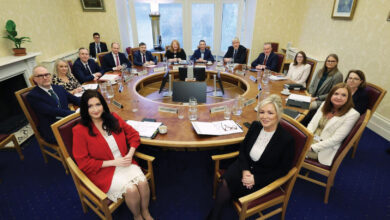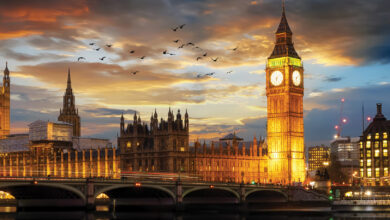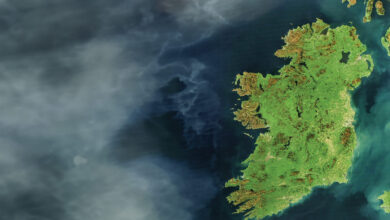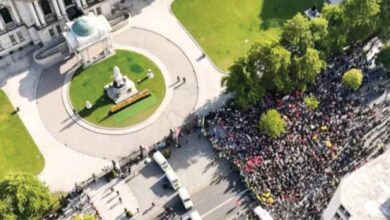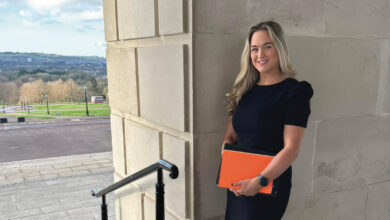State papers
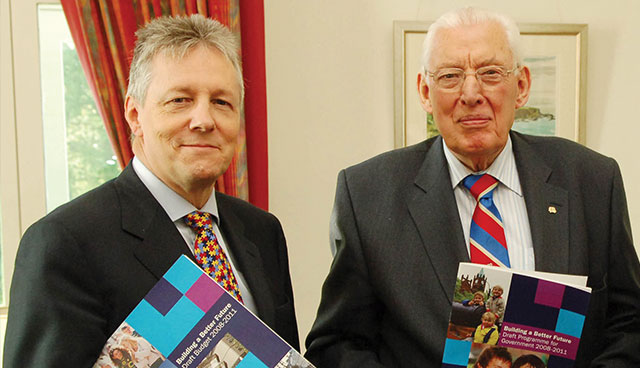
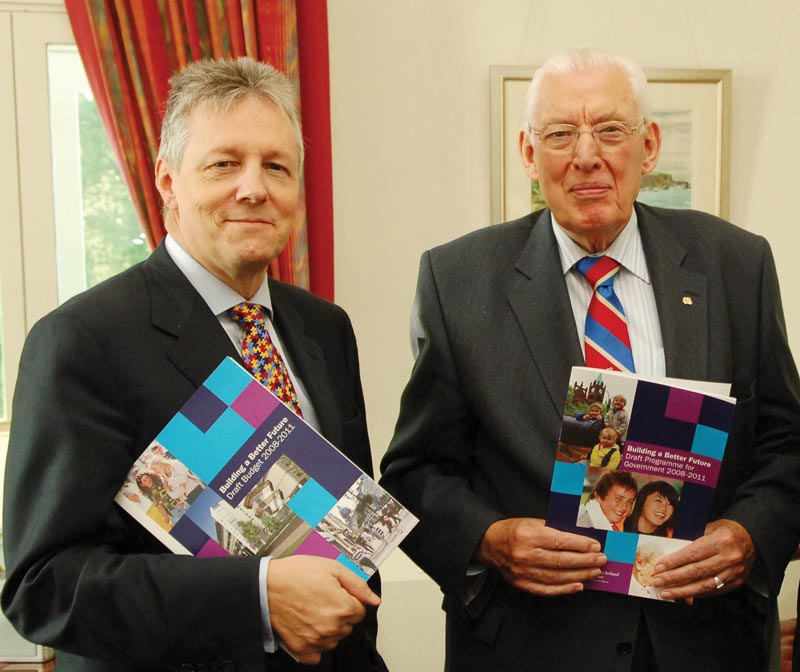
The ‘alternative universe’ of west Belfast, the employment of ‘safe catholics’ and recognition that blowing up border roads was a costly affair. agendaNi outlines some of the national media reports around the recent state papers release.
Documents relating mostly to 1991, a year when then Secretary of State Peter Brooke attempted to launch all-party talks against a backdrop of growing violence, have recently been released by the Public Record Office of Northern Ireland (PRONI) under the 30/20-year rules.
The Northern Ireland Assembly’s decision to reduce the limit for the release of government files from 30 to 20 years is being phased in over 10 years meaning two years’ worth of records are being released each year.
The records show that despite finally pioneering the peace process in Northern Ireland, DUP leader Ian Paisley had reservations about some of the concessions he made and his ability to sell the idea to his supporters.
The feelings were relayed by his then deputy, Peter Robinson, in a meeting with an NIO official in 1991, when he described himself as “very depressed about the political scene”. Robinson said that Paisley was convinced he had taken too great of a risk in agreeing for an Irish delegation led by Taoiseach Charlie Haughey to come to Belfast to discuss north-south elements of the talks.
Robinson, who went on to lead the party, was pessimistic about the future of the Union, stating “all British governments and any potential governments had made it clear that the Union was finished and that most protestants to whom he spoke knew that”. Adding: “The only alternative which they could see was independence.”
Robinson went on to relay that political frustrations in the unionist communities were driving the increased levels of violence and accused the British government of selling out the Union.
‘Safe’ catholics
The tranche of papers also revealed the NIO were on the receiving end of an accusation that it handpicked “safe catholics” for public appointments. Former SDLP deputy leader Bríd Rodgers called a meeting with NIO officials to voice her concerns around representation of the nationalist community.
Speaking about those catholics who were appointed, the official reported that Rodgers said: “They had been chosen because they were safe catholics and did not in fact represent any strand of nationalist opinion.”
Anglo-Irish
Anglo-Irish relationships during the period appeared strained as both dealt with the backdrop of violence. This however, did not stop the British Government paying out large sums of compensation to Irish citizens who had their border property damaged by blasts designed to close off roads.
The details were revealed as an NIO official warned that resuming such acts would likely result in further claims.
In 1983 the British Government paid the Irish Government £600,000 for such damage, after they had attempted to close of some of the 200 cross-border routes which could be used by paramilitaries. Advising against such action, the official noted that it did not always have the desired outcome.
“As I recall from the 1970s, groups of locals were fully capable of filling in craters with hardcore and surface material to repair the damage in operations quite like the present stunts staged by ‘community associations’.”
Just how much insight the Government had on daily living in Northern Ireland can probably be summed up by a member of the Northern Ireland Office’s Security, Police and Ops Division, who upon visiting west Belfast described feeling like “a character in a science fiction novel who had slipped into an alternative universe”.
Insight into the increasingly rocky relationship between Taoiseach Charles Haughey and British Prime Minister Margaret Thatcher were also offered.
According to a senior NIO official, Haughey regarded Northern Ireland as “a failed political entity” and both admired and feared Margaret Thatcher.
“The person who potentially has by far the most influence with Mr Haughey . . . is the Prime Minister.”
Relations deteriorated in 1988 over a decision not to prosecute RUC officers involved in shoot-to-kill incidents in north Armagh, the failure of the Birmingham six appeal and the killing of the Gibraltar three. In what was believed to be Haughey cutting himself off from the Department of Foreign Affairs, the memo said: “It is difficult to believe that he trusts anybody completely and the strange course that his policies sometimes follow suggests that, not only is he not working out a careful strategy, but also no one is doing it for him.”
After Haughey had angered Thatcher by what she deemed to be his reluctance to condemn violence while speaking in the US, it was proposed that an official be appointed as a go-between however, the memo noted: “The person who potentially has by far the most influence with Mr Haughey . . . is the Prime Minister. He clearly admires and also fears her (and the Irish people, we should not omit to tell her, admire no one more, save the Pope and Mother Teresa). If he thought she was listening and at least trying to understand Ireland and the problems he faced, there would surely be great benefits to relations.”
In later meeting the British Ambassador to Ireland, Sir Nicholas Fenn, following the killings of the Gibraltar three, suggested that the relationship had not changed: “He is suspicious and distrustful but… seems still to be casting about for salvaging a relationship he knows he needs.”
Haughey did need the British. He was hostile to the return of the three bodies of the Gibraltar three through Dublin and suggested that the RAF might fly the bodies direct to Belfast, admitting that he would not publicly state this. However, the British refused stating that it would be “inconceivable” to use the services of the RAF and the coffins were subsequently landed in Dublin.
Some of the other interesting details emerging from the papers include:
Irish elk currency (1986) – Unionists and nationalists would have broadly accepted an Irish elk on the proposed new pound coin. However, on placing it on a shield it was revealed that the new badge would have required royal ascent. The Secretary of State eventually agreed to the elk image, with the shield removed.
Europa financial support (1974) what would go on to be Europe’s most bombed hotel was struggling financially to deal with the damage caused as early as 1974. However, the Government were hesitant to set a precedent by offering financial support. In that year alone the hotel had been attacked 25 times and lost an estimated £225,000 and the decision was decided that by allowing the hotel to go under would provide a “unique propaganda victory for the terrorists”. However, when a similar request for assistance for the Russel Court Hotel on the Lisburn Road, the Government did refuse.
Influencing Rome the sudden death of Cardinal Tomás Ó Fiaich meant a new Archbishop of Armagh needed to be appointed. In a memo to the then Northern Ireland Minister of State and officials, a senior NIO official raised the possibility of approaching the Pope. During a pre-arranged meeting, the British ambassador to the Holy See met with the apostolic nuncio to Ireland, who assured the ambassador “that the three names… he was required to put forward would all be people he knew were well regarded by us”.

